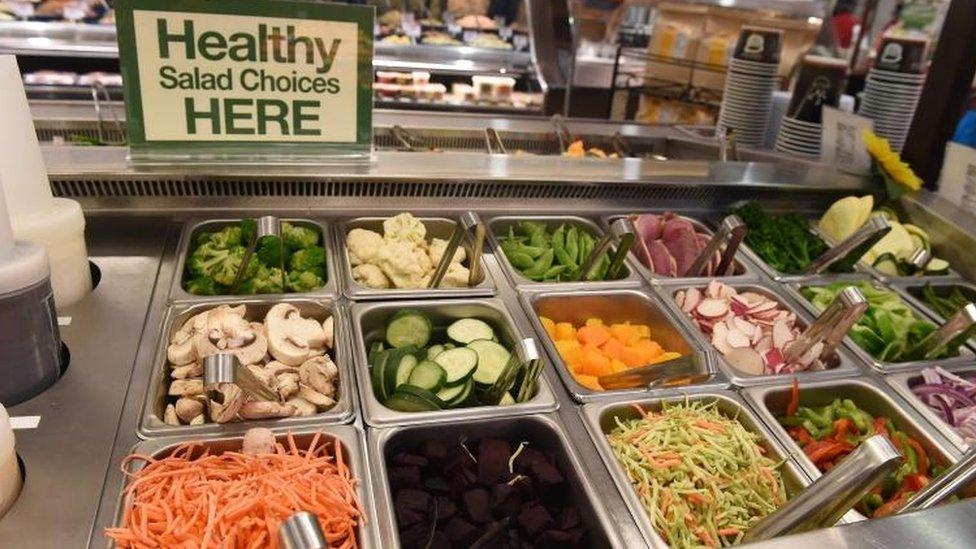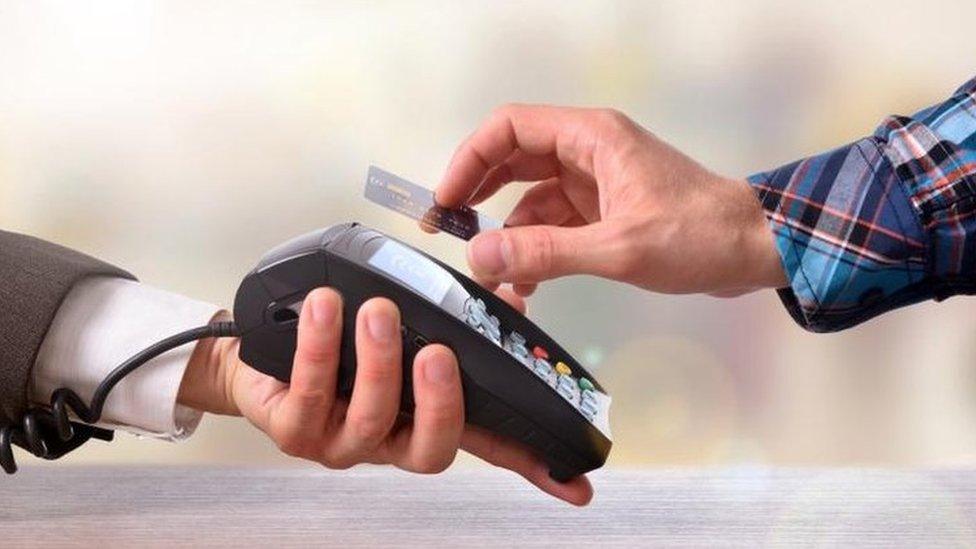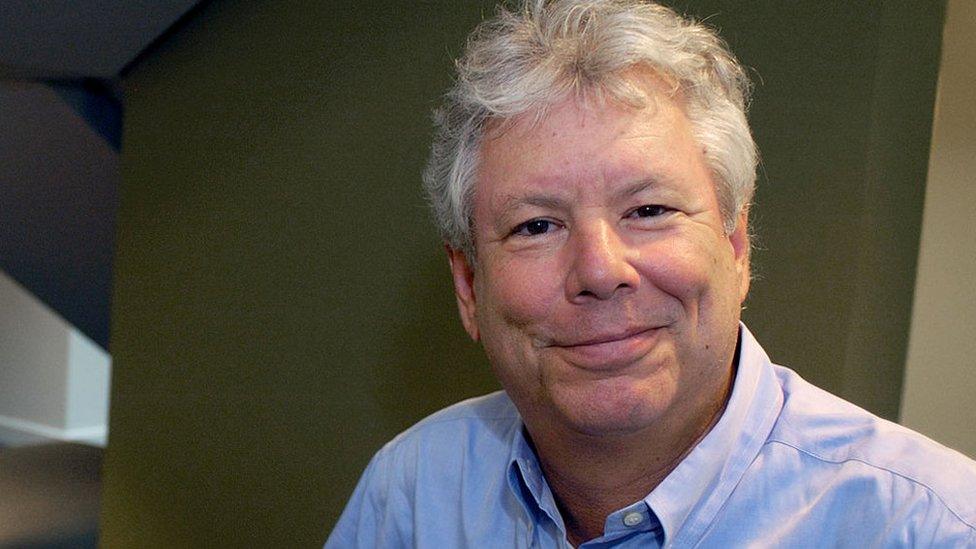Richard Thaler and the economics of how we live
- Published
- comments

Changing the positioning of healthier foods can change shopping habits
How do you get people to eat more healthily?
You could construct some powerful arguments about how an obesity epidemic is leading to more diseases such as Type II diabetes and coronary heart conditions.
You could put large red traffic light signs on unhealthy foods and engage in expensive public information campaigns warning that overeating products high in salt, sugar and fat can reduce life expectancy.
Or you could just change where you put the salad boxes on the supermarket shelves.
The last option is an example of nudge theory at work, a theory popularised and developed by Richard Thaler, the University of Chicago economist who was today announced as this year's recipient of the Nobel Prize for Economics.
Prof Thaler's central insight is that we are not the rational beings beloved of more traditional economic theory.
Given two options, we are likely to pick the wrong one even if that means making ourselves less well off.
Lack of thinking time, habit and poor decision making mean that even when presented with a factual analysis (for example on healthy eating) we are still likely to pick burger and chips.
We're hungry, we're in a hurry and burger and chips is what we always buy.
Nudge theory takes account of this, based as it is on the simple premise that people will often choose what is easiest over what is wisest.
Tests have shown that putting healthier foods on a higher shelf increases sales. The food is more likely to be in someone's eye line and therefore "nudge" that person towards the purchase - whether they had any idea about the obesity argument or not.
Such theories, which sit in a big bucket of academic study called "behavioural economics", are what Prof Thaler is famous for.
So famous that the government now has its own Behavioural Insights Team, otherwise known as the "nudge unit".
It helps formulate policies, for example on pensions, to try and make us behave "more rationally" and push us towards better outcomes.

Shoppers will spend more on a credit or debit card in a food shop compared with cash
One of its projects revealed that charitable giving via your pay packet - called payroll giving - increased dramatically if people were told who else in their peer group (maybe Facebook friends) were also giving via that method.
Attaching a picture of "mates giving money" also improved the level of charitable donations. We tend to like doing what our friends like doing - called the peer group norm.
Prof Thaler also gave us the concept of "mental accounting" - that we will tend to divide our expenditure into separate blocks even though they come from the same source.
For example, we will spend more on a credit or debit card in a food shop compared with cash even though all the money ultimately comes from our earnings.
Then there is his work on the "planner-doer" syndrome - that we lack self-control, will act in our own short-term self-interest and need extra incentives to plan long term than simply being told that, rationally, it is good idea.
How many times do we let that gym membership lapse, despite our best intentions?
Having just received news of the award, Prof Thaler told me that his job was to "add human beings" to economic theory.
And today he has been rewarded, both via the recognition of the Nobel Prize and by the not inconsiderable sum of £845,000 in prize money.
Asked how he would spend the money Prof Thaler gave a succinct answer. "Irrationally."
- Published9 October 2017
